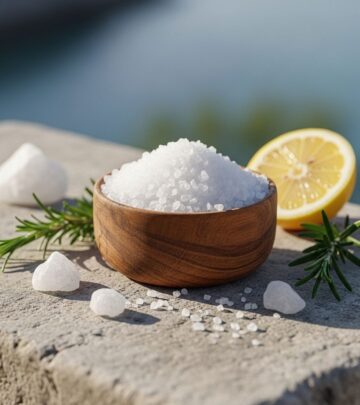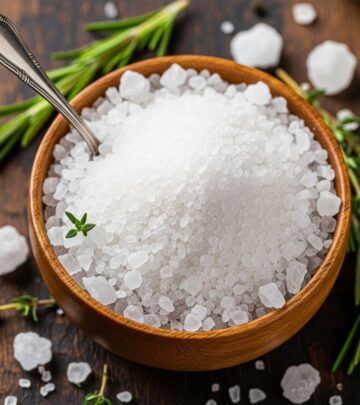How To Stop Farting: 8 Proven Tips To Relieve Excess Gas
Simple habits and gentle movement offer quick relief from embarrassing gas.

Farting, also known as flatulence, is a completely natural bodily function and a sign of a healthy digestive system. However, excessive farting can feel embarrassing and uncomfortable, especially in social situations. If you’re looking for practical solutions to minimize flatulence, you’re in the right place. This comprehensive guide will help you understand why you’re farting more than usual and provide science-backed remedies to reduce unwanted gas quickly and safely.
Why Am I Farting So Much?
Everyone passes gas—healthy individuals typically fart between 13 and 21 times a day. While this may sound like a lot, most flatulence is subtle and odorless, going unnoticed. Passing gas is essential; if it is not released, it can build up inside your abdomen, leading to bloating and discomfort.
The primary reasons for farting more than usual include:
- Swallowing air while eating, drinking, or talking
- Digestive gases produced by the intestines during the breakdown of food
Most extra gas is the result of swallowed air, but an increase in specific foods or activities can intensify the smell and volume. If your farts are particularly odorous, this is commonly caused by foods that lead to the production of hydrogen sulfide—a gas that can make flatulence smell like rotten eggs.
Certain foods increase the risk of smelly farts, including:
- Cabbage
- Alcohol
- Asparagus
- Coffee
- Chicken
- Dairy products
- Cucumber
Key factors that could be contributing to your excessive farting include:
- Eating or drinking too quickly
- Chewing gum often
- Smoking (including e-cigarettes)
- Lack of physical activity
- Constipation
- Regular consumption of sulfur-rich or gas-producing foods
8 Ways To Stop Farting Quickly
Reducing excessive flatulence usually comes down to lifestyle tweaks and paying attention to your eating habits. Here are eight effective, science-backed methods to control flatulence:
1. Eat Slowly and Mindfully
Eating too fast causes you to swallow excess air, contributing to flatulence. Take your time at meals, chew your food thoroughly, and focus on eating slowly to reduce the number of air bubbles that land in your digestive system. In addition, avoid talking when chewing, as this increases the likelihood of swallowing air.
Practical tips:
- Put down your utensils between bites
- Chew each mouthful thoroughly
- Don’t talk while eating
2. Quit Smoking
Smoking (including e-cigarettes) increases the amount of air you swallow, which can lead to more gas and flatulence. Smokers are statistically more likely to experience issues with excessive farting. If you are struggling with digestive discomfort and you smoke, quitting can make a noticeable difference for your gut and your overall well-being.
3. Exercise Regularly
Physical activity is a simple and effective way to move gas through your digestive system and prevent it from building up. Regular moderate exercise enhances digestion, reduces flatulence, and even relieves gas pain during pregnancy. Even a short walk after eating can have big benefits—this has recently become popular as the viral “fart walking” trend on social media.
- Try brisk walking for 10–30 minutes after meals
- Engage in light yoga or stretches focused on core and abdominal muscles
- Consider “fart walking” as a daily habit to aid digestion
4. Treat Constipation
If you are constipated, gas can get trapped in your gut, leading to uncomfortable bloating and flatulence. Addressing constipation—by increasing your dietary fiber, drinking more water, and staying physically active—can help reduce gas accumulation and make passing stools and gas easier.
- Eat a fiber-rich diet (whole grains, fruits, vegetables)
- Stay hydrated throughout the day
- Speak to a doctor for persistent constipation
5. Avoid Chewing Gum
Many sugar-free gums contain hexitol/sorbitol and other sugar alcohols, which can ferment in your digestive tract and contribute to increased gas production. Frequent gum chewing also causes you to swallow air—both leading to more flatulence. If you regularly chew gum, consider cutting back or switching to mints or simply avoiding gum altogether.
6. Limit Gas-Producing Foods
Certain foods are well-known for causing gas. While you don’t need to eliminate these healthy foods, try to identify which ones are particularly problematic for you and moderate your intake.
| Gas-Producing Foods | Alternatives |
|---|---|
| Beans & lentils | Lentils in small servings, thoroughly rinsed beans |
| Cruciferous vegetables (broccoli, cabbage, Brussels sprouts) | Zucchini, eggplant, spinach |
| Dairy (for those with lactose intolerance) | Lactose-free milk/products |
| Carbonated drinks | Water, herbal teas |
| Onions, garlic | Use smaller amounts or try cooking thoroughly |
| Whole grains (in excess) | Gradually increase intake to allow gut adaptation |
Keep a food diary to spot which foods trigger the most gas for you, and make dietary adjustments accordingly.
7. Sip Warm Water
Sipping on warm water can aid digestion, relax the digestive tract, and provide immediate relief when feeling gassy or bloated. This simple remedy can help reduce inflammation and discomfort caused by trapped gas.
8. Avoid Drinking Through Straws and Sucking on Hard Candy
Drinking beverages through a straw or sucking on candy increases the amount of air you swallow. Reduce or eliminate these habits to minimize unnecessary air intake and the corresponding gas production.
General Lifestyle Tips For Reducing Flatulence
- Eat smaller, more frequent meals throughout the day.
- Limit alcohol, beer, and carbonated drinks, which promote gas formation.
- Check that dentures fit properly, as poorly fitting dentures can cause air swallowing.
- Optimize gut health with probiotic-rich foods like yogurt and kefir (if tolerated).
- Try herbal teas like peppermint, fennel, or ginger for mild, natural digestive relief.
What About “Fart Walking”?
Recently, the concept of “fart walking” has gained attention on social media. The idea is simple: take a short, gentle walk after meals to help your body expel trapped gas naturally. Early evidence and expert opinion suggest post-meal movement can help with digestive health, reduce bloating, and lessen blood sugar spikes after eating. While the concept is new, the underlying advice is sound—gentle movement after eating can help reduce gassiness and discomfort.
- Walk for at least 10 minutes after each main meal when possible.
- Focus on gentle, relaxed movement — not intense exercise.
When To See a Doctor
While flatulence is usually harmless, seek medical advice if you experience:
- Sudden changes in your farting frequency or severity
- Severe, persistent abdominal pain
- Blood in your stool
- Unintentional weight loss
- Ongoing nausea or vomiting
These symptoms could indicate an underlying digestive condition that requires professional assessment.
Frequently Asked Questions (FAQs)
1. Is farting all the time normal?
Passing gas up to 13–21 times per day is considered normal. If you notice a sudden increase or discomfort, it may be worth evaluating your diet and habits for changes that might be causing the increase.
2. Why do my farts smell so bad?
Particularly strong-smelling flatulence is most often caused by the breakdown of sulfur-rich foods (such as eggs, cabbage, or garlic) in your digestive tract. A diet high in these ingredients will usually result in smellier gas.
3. Does stress affect flatulence?
Stress and anxiety may worsen digestive symptoms by increasing the sensitivity and movement of your gut, potentially leading to more gas or bloating. Relaxation techniques can help in managing stress-related digestive issues.
4. Are there natural remedies that can help?
Yes. Along with sipping warm water, herbal teas (like peppermint or ginger), and eating small, frequent meals, regular physical activity and mindful eating are all natural ways to support digestive health and minimize gas.
5. Can certain medications make me fart more?
Some medications (including certain antibiotics or laxatives) can alter the balance of bacteria in your intestines, temporarily increasing gas production. If you suspect a medication is contributing to digestive discomfort, consult your doctor before making changes.
6. What immediate step can help when I feel bloated from gas?
Drinking warm water, standing up, moving around, or lying on your left side can often help gas move through your intestines and bring some relief.
Key Takeaways
- Farting is a normal part of digestion, but excess flatulence can result from air swallowing, diet, or lifestyle habits.
- Most people can reduce flatulence by eating slowly, quitting smoking, staying active, and modifying their diet.
- Simple remedies like sipping warm water, post-meal walking, and minimizing gum chewing can all help support healthy digestion and comfort.
- If symptoms persist or are accompanied by severe pain or other worrisome signs, speak to a healthcare professional.
References
- https://www.stylecraze.com/articles/how-to-stop-farting/
- https://www.healthline.com/health-news/fart-walking-digestive-health-trend
- https://www.youtube.com/watch?v=pyU2OWg4Nt0
- https://www.menshealth.com/health/a19546650/foods-that-make-you-fart/
- https://www.stylecraze.com/author/sanchari_bhattacharya/
- https://www.scmp.com/lifestyle/health-wellness/article/3165420/how-stop-farting-so-much-foods-cause-excess-wind-how-much
- https://health.clevelandclinic.org/why-do-farts-smell
Read full bio of medha deb












